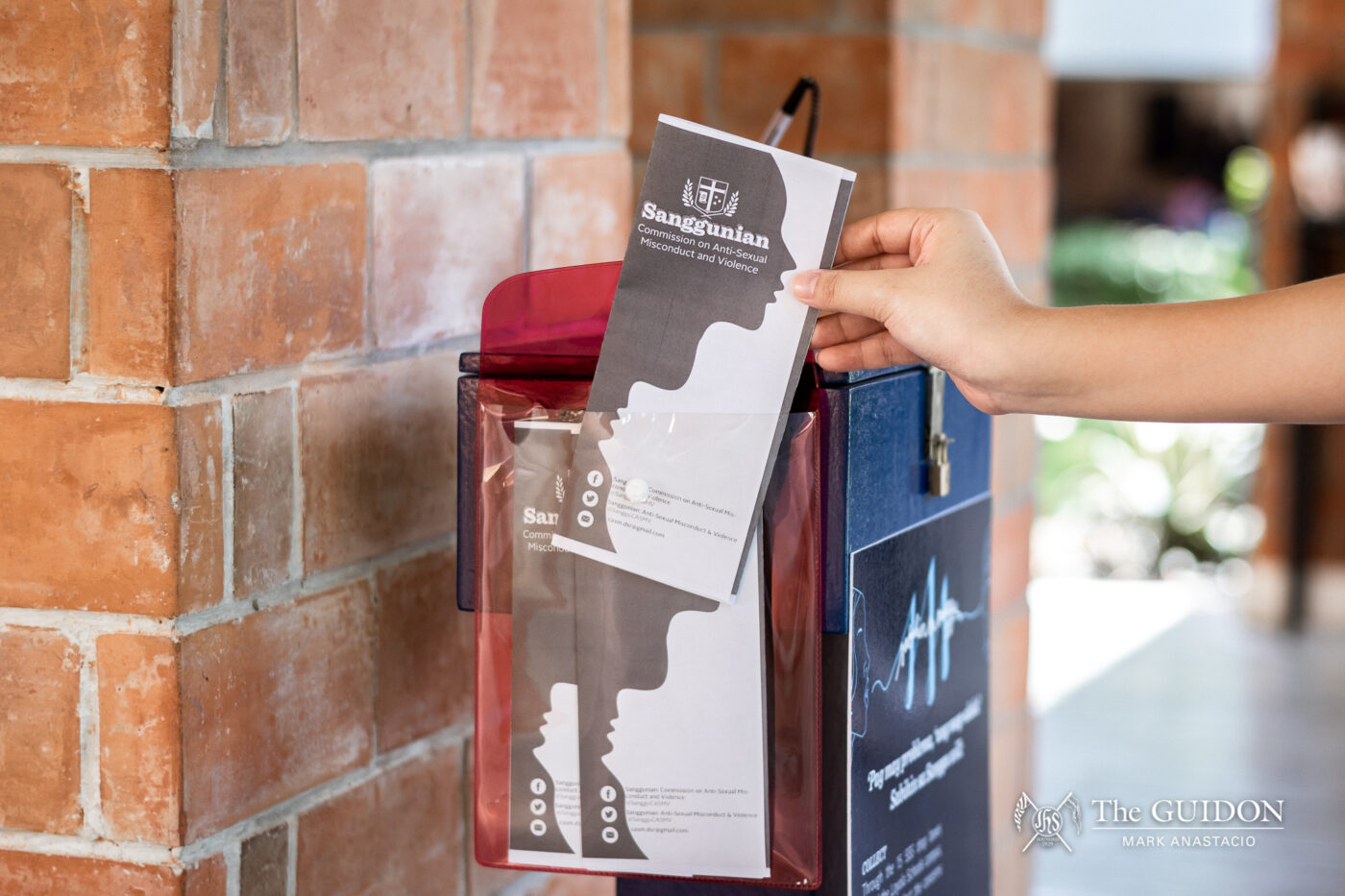THE SANGGUNIAN Commission on Anti-Sexual Misconduct and Violence (CASMV) released a statement in support of the Loyola Schools Policy Statement of the Technical Working Group (TWG) for an inclusive, gender-responsive and safe community through the proposed Loyola Schools Gender Policy on September 9.
In the statement, the Loyola Schools (LS) reaffirmed its vision of an inclusive, gender-responsive, and safe community through creating an enabling environment, developing transformative practices, and providing adequate responses. The statement has garnered 623 signatories as of this writing.
The need for the proposed LS Gender Policy, as well as the drafted LS Code of Practice Against Sexual Harassment, which is a “comprehensive manual on all the University’s commitments, procedures and services” on the matters of sexual misconduct on campus, is currently being deliberated upon by the TWG.
In line with this, a School Forum on October 12 included updates on the status of the LS Policy Statement delivered by Institute of Philippine Culture Director and Political Science assistant professor Maria Elissa Lao, PhD, English assistant professor Carolyn Pile, and student representative to the TWG Dasha Uy.
The need for policy
According to the introductory statement of the CASMV, the commission was created “in an effort to protect and uphold the dignity of each member of the community.”
The TWG is a group of students, administrators, and faculty convened by Vice President for the Loyola Schools Maria Luz Vilches, PhD to craft gender-sensitive and anti-sexual misconduct policies.
In an interview, Psychology Department Chair and TWG Head Mira Alexis Ofreneo, PhD stated that “the TWG’s initial purpose is to create the guidelines on sexual misconduct which is now known as the Code of Practice.”
The 2016 LS Student Handbook contains a Code of Conduct that includes sexual misconduct as an offense under Article III, Section B: Offenses Against Persons. However, what constitutes as sexual misconduct is not specified.
Ofreneo explained that sexual harassment is already highlighted in the law and the Code of Conduct, but there are other forms of harassment such as peer-to-peer harassment that may not fall under the existing laws.
“It clarifies as well the processes for handling such cases and offenses,” Ofreneo said.“The goal of the TWG is to come up with a policy to accompany that set of guidelines, so that the policy may speak on what the community stands for instead of simply looking at the offenses.”
Communications technology sophomore and former CASMV Co-commissioner Moexia Discar said that initiatives on sexual harassment policies have already been proposed to the administration in the previous years. In response, the proposed policy is a measure to ensure that students are being protected from any form of gender-based discrimination and violence.
“As we all know, there have been numerous cases of sexual misconduct and violence involving the Ateneo community. It is highly necessary for the community to have a framework of reference that will aid them in understanding compelling issues and concerns that they may have,” she explained.
Ofreneo said that the goal of the policy is to sensitize people, as it aims to spark conversation and dialogue and to end silence in the community regarding the issues.
“The idea is that it creates a new kind of sensitivity and allows people to reflect [on their outlook towards gender issues],” Ofreneo added.
Community acceptance
While much of community has expressed their support for the proposal, there has also been a number of points raised to nuance it.
Theology assistant professor Joseph Johnson raised a question during the forum concerning the effects of the proposal on academic freedom.
“Given that the Catholic Church teaches a certain purposiveness to our sexuality, and certain behaviors contradict the objective meaning given by God, further, the gender policy statement included ‘changing course curriculum to suit the policy statement,’ would I be reprimanded by teaching [my students] what’s stated in official and other doctrinal clarification [such as the Bible and church teachings]?” he asked.
In an interview with The GUIDON, he said that he received a partial answer on how the policy is open to discussion. He also stated that he did not oppose the policy, but instead wanted to continue presenting the Catholic viewpoint, as he believes universities should allow the presentation of different viewpoints.
Political science associate professor Ma. Lourdes Rallonza, PhD said in the school forum that the focus of gender is the centrality of the human person. She called for the community to respect and avoid labeling one another such as as “uncatholic.”
Impact on LGBT Community
Meanwhile, Sanggunian Commission on Gender Equality (CGE) of the Sanggunian co-commissioner and student representative to the School Forum Ramon Tanjuatco forwarded accounts of fellow Ateneans who are “ridiculed for their choice of outfits.”
He added that the misgendering of students such as the use of ‘kuya’ and ‘sir’ is damaging to the self. He also shared instances in which students were invalidated of their athletic capability because of their gender.
CGE co-commissioner Ivan Monasterial, also highlighted other areas to improve on regarding gender equality, particularly inclusivity.
“Equality is not about being anti-men or anti-women. It’s not trying to highlight the marginalized. The mindset should be about everyone,” he explained.
“The [administration] also has a lot to improve on. From what I know, trans men and women are still required to write a letter to the [administration] explaining why they should be allowed to crossdress [for AEGIS photoshoots as stated in the AEGIS Primer.] Not to fully say may kakulangan sila [the administration], but a half-step is as good as no step,” he expressed.
Ofreneo said that the Code of Practice is projected to be released for public consumption by the second semester.







